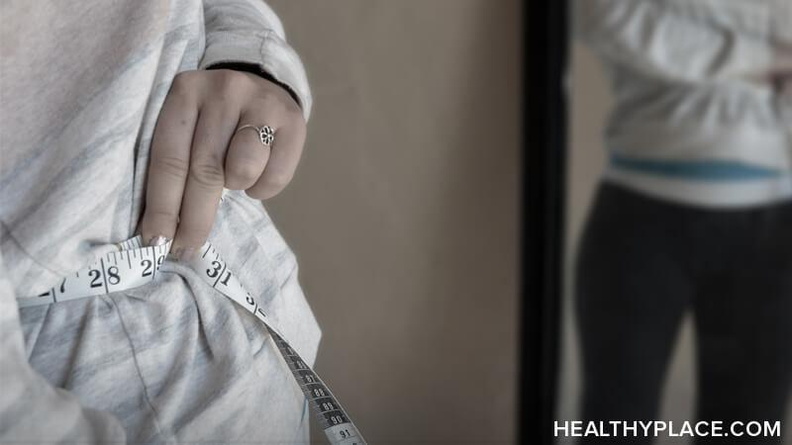Mirror Triggers in Eating Disorder Recovery

Mirror triggers are one of the many triggers in eating disorder recovery. Two common themes for those with eating disorders are a repulsion of fat and negative or distorted body image. Recovery includes adjusting our thoughts and feelings around these two, in spite of eating disorder triggers. It’s important to note, however, that no two people recover exactly the same way. Last week we talked about weight gain during recovery and viewing ourselves in the mirror (How to Deal with Weight Changes In Eating Disorder Recovery). One person told me that that they couldn’t look in the mirror because it made them want to cry. This made my heart hurt because it’s an honest, raw, and legitimate feeling. Many of us have experienced this feeling, myself included, and it’s a source of deep sorrow. So, how do we keep moving forward with mirror triggers in eating disorder recovery?
Acknowledge Your Feelings and Mirror Triggers in Eating Disorder Recovery
First, it’s vital to acknowledge that our feelings and triggers are legitimate and valid (Mental Illness Validation: I Believe You). When we’ve committed to eating disorder recovery it doesn’t mean that we’re going to like it, especially at first. There will be times when we want to go back to our old patterns. There will be times when we miss our eating-disordered body, despite the fact that it was unhealthy or even destructive for us. We will miss our old life, even if it was killing us. I know we all know what I mean.
It’s Okay to Be Scared of Recovery Triggers
Recovery is scary because it’s a whole new process. We’re giving up the control that we once so desperately sought and tried to keep a handle on. It’s okay to acknowledge that it sucks. It’s okay to be honest and say that we’re terrified of our body becoming a balloon, or of facing the emotional stuff we’ve been stuffing, starving, or throwing up (What The Mirror Shows Me in Eating Disorder Recovery).
It’s Okay to Mourn the Loss of the Eating Disorder
It’s okay to mourn the loss of the eating disorder; because, after all, it did serve a purpose. It was the best way that, at that point in time, we felt we could protect ourselves from the world. We’re not stupid. We just chose something that would provide us comfort, safety, control, or fill-in-the-blank we sought at our time of distress. Maybe we were grasping at straws and the eating disorder was the one that our fingers pulled.
The eating disorder has been a close, intimate friend, and now we’re saying goodbye. It’s okay to mourn the loss of a friend, and to remember the reason we’re choosing to walk away. The relationship no longer serves us (Eating Disorder Recovery: Getting Better and Losing Friends). If we continue, it will destroy us mentally, physically, emotionally, and spiritually. It will take us down, to the grave.
Handle Mirror Triggers in Eating Disorder Recovery Your Way
Although we share a common pool of eating disordered criteria, every person is unique. To the person who can’t look at their body in the mirror without crying, maybe mirrors trigger you or don’t feel like you have a safe space right now. That’s okay. Start your recovery where you feel comfortable and begin to expand that comfort zone (Body Image and Acceptance in Eating Disorder Recovery). Maybe for a while you can cover, or remove, all the full-length mirrors in your house. Maybe your recovery breakthrough will be more focused on how you feel in your body instead of coming to a contrived peace with what you see in the mirror.
There are many ways to love our bodies that have nothing to do with how we look in the mirror. What are a few ways that you could love your body, or feel good in your body, that have nothing to do with its looks?
Dealing with Mirror Triggers in Eating Disorder Recovery
APA Reference
Zoccolante, Z.
(2016, April 6). Mirror Triggers in Eating Disorder Recovery, HealthyPlace. Retrieved
on 2024, April 19 from https://www.healthyplace.com/blogs/survivinged/2016/04/how-to-respond-to-mirror-triggers-in-eating-disorder-recovery
Author: Z Zoccolante
Media should spread awareness about mental disorders
An interesting article that most people, especially women, should read is Girl Interrupted printed in You magazine. http://bit.ly/206TUeX
Pakistanis are suffering from various forms of depression and anxiety but they seldom know what it is and so they don't seek a treatment for this. They continue to suffer for years without even trying to find a relief. People don't understand that they are suffering from mental disorders. Unfortunately, mental is used in a bad way which usually means insane.
The main reason for this is the lack of awareness about anything that is linked to psychology. When anyone talks about psychology people think of mental asylums and electric shocks. This is because many people have no idea that there is a lot more to explore in this field.
Also seeking any form of counselling or therapy in Pakistan is almost taboo, although they will seek the help of a herbal healer or peer.
This article touches some important things like bi-polar which is a relatively new for our society, as well as PTSD and schizophrenia among other psychiatry issues.
It is requested that more efforts to highlight such important issues in the media are taken in Pakistan, so that people can seek the appropriate help without causing more distress to those suffering.